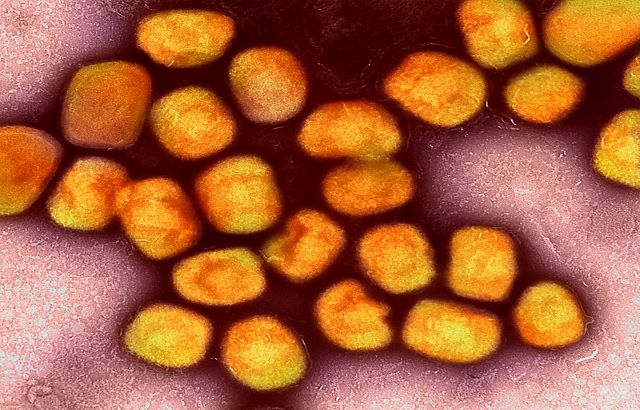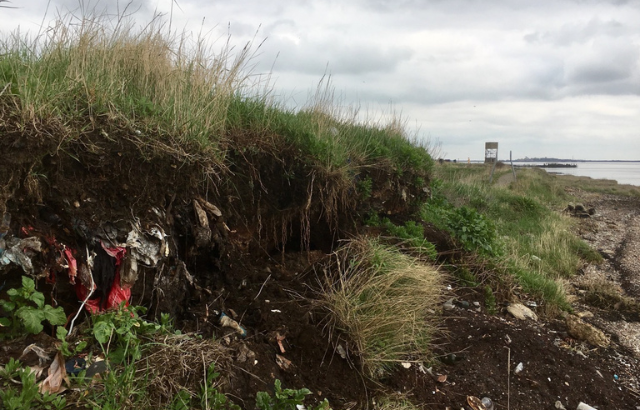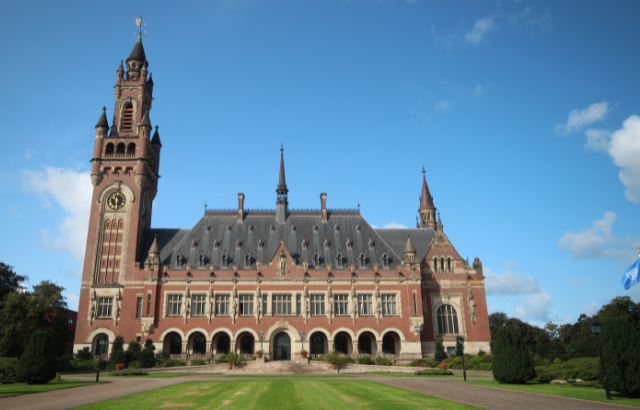Queen Mary University of London academics share multidisciplinary research at Pandemic Research Symposium
Academics from across Queen Mary came together to share multidisciplinary knowledge about the Covid-19 and monkeypox pandemics to mitigate and prevent future global events.

Colourised transmission electron micrograph of monkeypox virus particles (gold) cultivated and purified from cell culture. Image captured at the NIAID Integrated Research Facility (IRF) in Fort Detrick, Maryland. Credit: NIAID
The symposium created a space to acknowledge and celebrate the ongoing research at different faculties of the University as part of the Crisis and Resilience multidisciplinary (MDT) research theme.
Chloe Orkin, Professor of HIV Medicine at Queen Mary, has led some of the world’s most important monkeypox research in the last few months and presented findings of her recent research into the virus’ outbreak in cisgender (cis) and transgender (trans) women and non-binary individuals assigned as female at birth
Earlier this year, Dr Orkin led an international collaboration of clinicians to identify new clinical symptoms of monkeypox in the largest case study series to date to help improve future diagnosis of the disease and help to slow the spread of infection.
Dr Orkin also reflected on how our understanding of the disease has changed since it was first identified 70 years ago. Previously it was thought to have been transmitted by skin-to-skin contact, however in May 2022 international case definitions were modified to reflect that sexually active gay and bisexual men who have sex with men are a particular group of people at risk.
Other presentations at the symposium reflected on research that highlighted the impact of Covid-19 on people physically, emotionally, socially and economically as well as its' wider society impacts. In addition to launching new research studies, the University also responded to immediate local needs during the pandemic.
The Multi-disciplinary Theme (MDT) in Crisis and Resilience is a collaborative network that pools together knowledge and resources to build on the highly successful trauma and critical care clinical sciences and brings together social health and social sciences to create cutting edge research on all aspects housed under the overall umbrella of crisis.
The research in this area focuses on the core aspects of crisis, such as knife violence reduction, injury prevention to public health, the effects of trauma on the body, the body’s response to injury and rehabilitation, the impact of life stress/genetic factors on mental illness and prevention of violence and radicalisation.
Dr Karim Brohi, Professor of Trauma Sciences and Crisis and Resilience Lead at Queen Mary University, said: “Over the last three years, staff at Queen Mary have responded to the pandemic in so many ways, directing their expertise to understand the coronavirus and COVID; evaluating new vaccines and treatments; and understanding its impact on our health and society.
“Colleagues across the University and NHS Barts Health have delivered so much incredible pandemic research. Viruses know no borders and it is the responsibility of healthcare practitioners and researchers to share knowledge and data that can act as a guide to navigating through pandemics successfully.”
Related items

10 December 2024

10 December 2024
